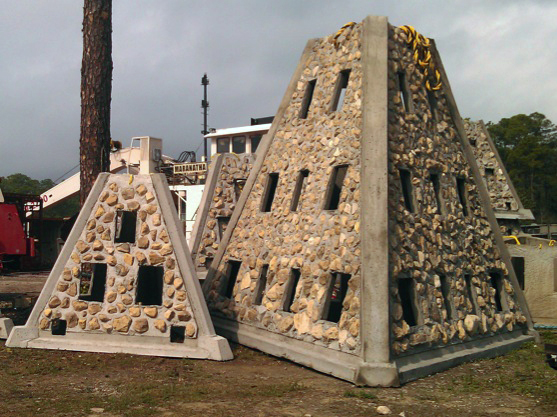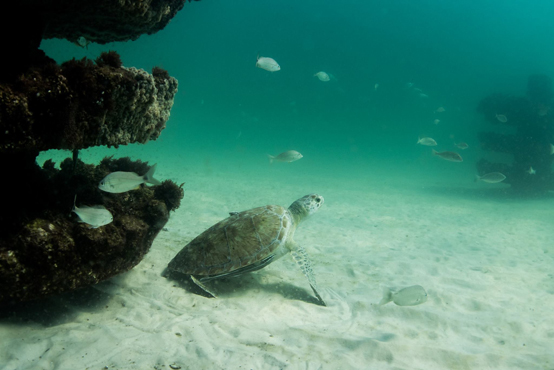
South Walton Artificial Reef Association (SWARA) has some great news for 2017. Seven years after the 2010 Deepwater Horizon Oil spill in the Gulf of Mexico, Natural Resources Damage Assessment (NRDA) artificial reef deployment funding has been allocated, contracts awarded, and hundreds of new artificial reefs are slated to splash off Walton County waters.
Exact timing is contingent upon windows of favorable weather and sea conditions, however SWARA’s overall plan is:
One patch reef within each of the 9 near-shore and 3 off-shore reef sites will be deployed as follows:
• 185 snapper pyramids (8’ tall) – approx. 12 reef modules per site.
• 170 hybrid grouper boxes w/ 3 disk ecosystem towers (6’ tall) – approx. 14 reef modules per site.
• 12 super pyramids (18′ tall) – 1 per site.

The remaining three snorkel reefs will be fully deployed as follows:
Miramar – dolphin design
Topsail – seahorse design
Inlet Beach– cobia design
Grayton Beach – turtle design was installed in 2015.
“If not for the significant contributions made by our founding sponsors which allowed us to permit these sites, our County would not be receiving anywhere near the $1.7 million allocated to Walton County,” said Andy McAlexander, SWARA founder.
The contributing founding sponsors are Coastal Conservation Association, Florida; The Alys Foundation; Howard Group; Stinky’s Fish Camp; Walton County Tourist Development Council, Walton County Board of County Commissioners, and St. Joe Community Foundation.
For more information and reef site map go to www.waltonreefs.org. To learn more about SWARA on their Facebook page, click here.
About artificial reefs:
Within hours of deploying a concrete reef, small fish move into their new home. This initiates a parade of marine life over several months. The hard structure of an artificial reef is slowly colonized by soft corals, sponges, plants, and barnacles. The smaller fish will soon have new neighbors, as snapper and grouper take residence. Nearby sand sediments come to life with sea stars, sand dollars, and other invertebrate species. Click here to learn more about the benefits of artificial reefs.
